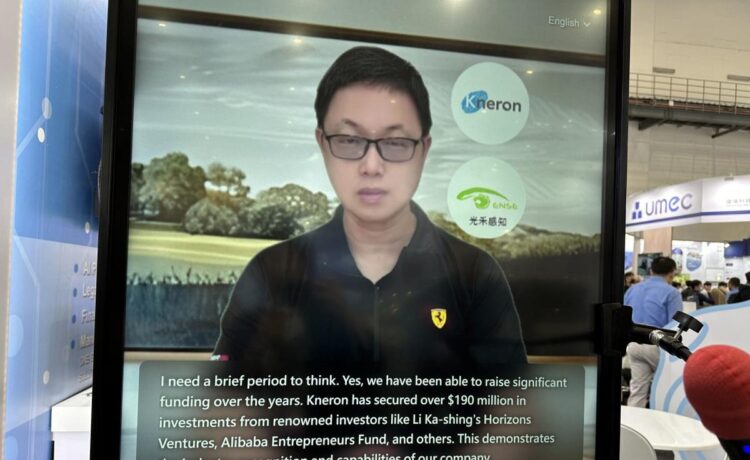(Bloomberg) — Artificial intelligence chip startup Kneron Inc. is in talks to raise $300 million in its latest funding round, which could value the Taiwanese-American company at about $1 billion, according to two people with knowledge of the matter.
Most Read from Bloomberg
Kneron wants to use the funds for product innovation and expansion, including opening a regional office in Saudi Arabia, according to an investor presentation seen by Bloomberg News. Eventually, it wants to build a research and development lab there, the people said, asking to remain anonymous describing private negotiations.
It was unclear who would be participating in the latest funding round or how much has been secured. Kneron has previously received funding from Qualcomm Ventures, Sequoia Capital China (now known as HongShan), iPhone maker Hon Hai Precision Industry Co. and Hong Kong billionaire Li Ka-Shing’s Horizons Ventures.
This is expected to be Kneron’s last funding round before going public, according to the presentation, which it plans to show during an Investor Day hosted under Saudi Arabia’s National Semiconductor Hub on Wednesday. Its listing is tentatively slated for 2025. Kneron signed a non-binding letter of intent to list on the Nasdaq through a special purpose acquisition company, Spark I Acquisition Corp., which is sponsored by one of its investors SparkLabs Group, according to a US securities filing on Monday.
Negotiations are proceeding and the funding could still fall apart or fail to hit its target.
Kneron is the latest AI chip firm to seek expansion in Saudi Arabia as the oil-rich nation builds up its digital economy. US-based SambaNova Systems and Groq, as well as South Korea’s Rebellions, are among the startups that have partnered with Saudi firms in the last year.
Kneron was founded in 2015 by former Qualcomm Inc. engineer Albert Liu and has headquarters in San Diego and Taipei. It makes AI processors that power consumer goods like surveillance cameras and cars without needing to connect to the internet or use cloud-based systems.
Its so-called neural processing unit, or NPU, is a versatile chip that can be composed like Lego blocks to support different purposes efficiently, and can be used in data centers to run or eventually train AI models, Liu previously told Bloomberg. Kneron’s chips are manufactured by Taiwan Semiconductor Manufacturing Co. and they are used in Hon Hai Precision’s electric cars as well as South Korean firm Hanwha Vision Co.’s surveillance cameras.
While the AI investor frenzy has focused on Nvidia Corp., whose chips became coveted hardware for training advanced tools like OpenAI’s ChatGPT, a growing number of startups are targeting the market for running trained AI models on so-called edge devices, including smartphones, PCs, cameras, cars, drones and robots. Bloomberg Intelligence last year estimated that the edge AI chip market could be more than triple the size of cloud-based AI by the end of 2032.
Most Read from Bloomberg Businessweek
©2024 Bloomberg L.P.














